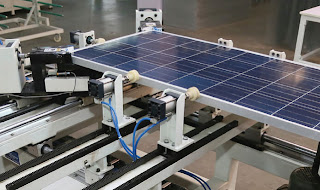Exploring Solar Energy, Air Conditioning, and Ammonia Cooling Systems in Lebanon
Lebanon is embracing modern technology to address its energy and cooling needs. Innovations in technology are transforming the way Lebanese homes and businesses operate. This blog will explore these advancements and their impact on our daily lives.
Solar Energy: A Bright Future
With abundant sunshine throughout the year, Lebanon is ideally situated to harness solar power. Solar energy in Lebanon is gaining popularity as a reliable and sustainable power source. Installing solar panels on rooftops and open spaces allows households and businesses to generate electricity, reducing reliance on the national grid and lowering energy bills. Solar energy systems are also environmentally friendly, contributing to reduced carbon emissions and a cleaner environment.
Integration of Renewable Energy and Cooling Technologies
Integrating renewable energy sources like solar power with advanced cooling technologies is a growing trend. For example, combining solar energy with air conditioning systems can further reduce energy consumption and increase efficiency. Solar-powered air conditioners use energy directly from solar panels, minimizing the need for electricity from the grid. This synergy between renewable energy and cooling technologies represents a significant step towards sustainable living.
Modern Air Conditioning Solutions
Modern air conditioning systems are designed to handle the hot and humid climate, providing consistent cooling while using less energy. Air conditioning in Lebanon has evolved with new technologies that improve efficiency and comfort. Inverter technology, for instance, allows air conditioners to adjust their cooling capacity based on the room's temperature, resulting in significant energy savings. Additionally, smart air conditioners can be controlled remotely via smartphones, offering convenience and customization for users.
Benefits of Ammonia Cooling Systems
Ammonia cooling systems are becoming a popular choice for industrial refrigeration. Ammonia is an efficient refrigerant with a high cooling capacity, making it ideal for large-scale operations such as food processing plants and cold storage facilities. These systems are not only energy-efficient but also have a lower environmental impact compared to traditional refrigerants. They use less electricity, reducing operational costs and promoting sustainability in the industrial sector.
Government Initiatives and Support
The Lebanese government is actively promoting the adoption of solar energy and advanced cooling systems through various initiatives and incentives. Financial subsidies, tax exemptions, and favorable regulations are encouraging individuals and businesses to invest in these technologies. Government support plays a crucial role in accelerating the transition to sustainable energy solutions and enhancing the country's energy security.
Challenges and Opportunities
Despite the numerous benefits, there are challenges to the widespread adoption of these technologies. High initial costs, lack of awareness, and limited technical expertise are some of the barriers that need to be addressed. However, with continuous advancements and increased government support, these challenges can be overcome. The potential for job creation and economic growth in the renewable energy and cooling sectors presents significant opportunities.
Conclusion
Lebanon is making strides in adopting innovative solutions for its energy and cooling needs. By embracing these technologies, they can achieve a more sustainable and energy-efficient future. The integration of renewable energy and advanced cooling technologies, supported by government initiatives, holds great promise for the country's development. Adopting these innovations not only addresses current energy challenges but also paves the way for a cleaner and greener earth.




Comments
Post a Comment